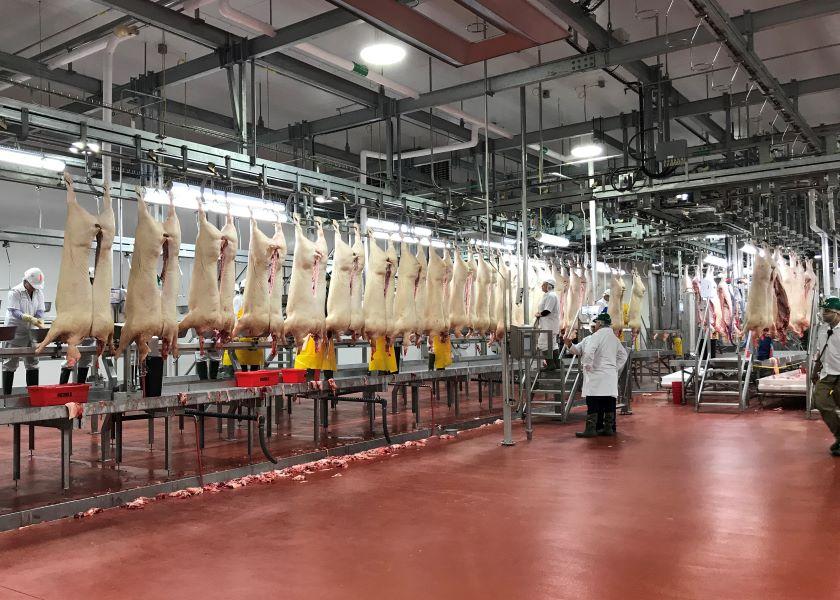USDA Launches Loan Guarantee To Build Capacity

Ag Secretary Tom Vilsack announced plans for another $100 million in funding from the American Rescue Plan Act intended to help expand meat processing capacity and the number of processors in the meat and poultry supply chain.
The funding would leverage hundreds of millions more in lending through community and private sector lenders to expand meat and poultry processing capacity and finance other food supply chain infrastructure, USDA said in a news release. These investments will help deliver more opportunities and fairer prices for farmers and address bottlenecks in the food supply chain revealed and exacerbated by the pandemic.
In a teleconference with reporters on Monday, Vilsack said USDA will establish a loan guarantee program to reduce the risk to bankers and to others who are providing financing to processors or producer groups. The funds will help finance mobile processing facilities, expansion of cold storage capacity or helping producers establish coops to brand or market their products.
“These loan guarantees are important to bankers and those who provide the financing, because they may not be as familiar with the risk associated and there's a real reluctance on the part of commercial lenders to establish and to provide the credit with our loan guarantee,” Vilsack told reporters.
Vilsack told reporters that $55 million in grants have already been issued to modernize existing small and very small plants to allow them to expand market opportunities. The secretary also said roughly 250 applications are currently under review for $100 million in grants for meat and poultry processing facilities.
The additional loan guarantees are intended to increase available loan money for working capital, facilities, equipment and other investments. They will help to start-up or expand entities in the food supply chain that aggregate, process, manufacture, wholesale or distribute food; address supply chain bottlenecks; and increase the resiliency of the food supply chain, the release said.
The National Cattlemen's Beef Association issued a statement in support of the loan guarantees.
“Our number one goal at NBCA continues to be opening up new opportunities for cattle producers to be profitable,” said NCBA Vice President of Government Affairs Ethan Lane. “The pandemic accentuated a number of vulnerabilities within our supply chains—chiefly the choke point at the meatpacking sector which has resulted in unsustainable prices for cattle producers and increased the cost of beef for consumers. Today’s announcement is another step toward returning stability to the markets, and NCBA urges USDA to announce eligibility requirements and application instructions as quickly as possible.”
USDA will publish specific details on the new program and how to apply as part of USDA’s Build Back Better Initiative, a comprehensive plan to invest $4 billion to strengthen the resiliency of America’s food supply chain while promoting competition. Vilsack said a lender outreach training program would be scheduled for October 14.
This announcement follows the Biden-Harris Administration’s announcement earlier this month of steps it is taking to address concentration in the meat-processing industry, adding a new commitment of $100 million for loan guarantees on top of the previously announced $500 million investment to expand meat and poultry processing capacity.
“Under the leadership of President Biden and Vice President Harris, USDA is shifting the balance of power back to the communities and small businesses of America by investing in ways we can build more, better and fairer markets for farmers and families alike,” Vilsack said. “COVID-19 revealed vulnerabilities in our food system. As we build back better, we must create more, better and fairer markets that enhance competition and create economic opportunity across America’s agriculture and food supply chains. This is another meaningful step in our efforts to act on lessons from COVID-19 to build a food system that is fair, competitive, distributed and resilient where a greater share of the food dollar goes to those growing, harvesting, processing and preparing our food.”
Earlier this year, USDA announced more than $150 million for existing small and very small processing facilities to help them weather COVID, compete in the marketplace and get the support they need to reach more customers.







